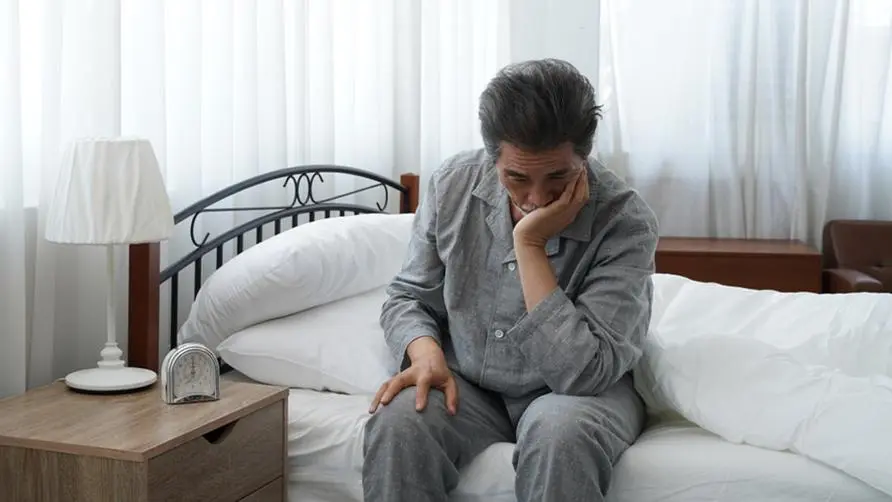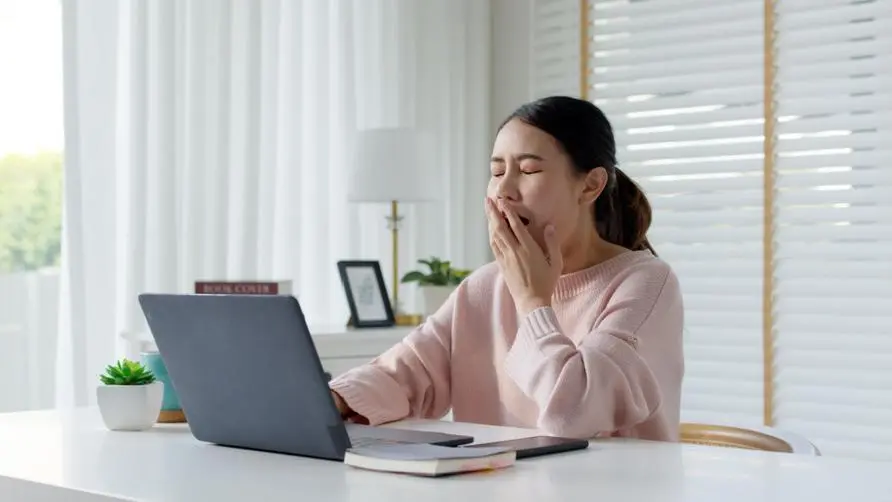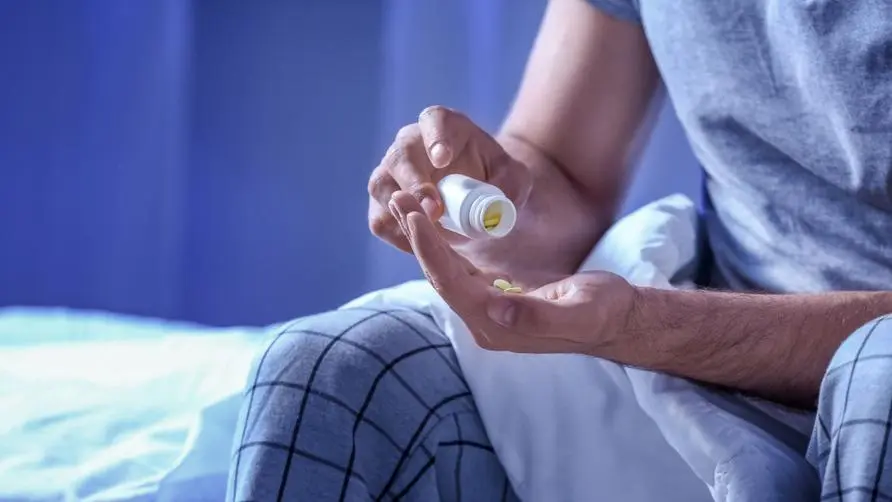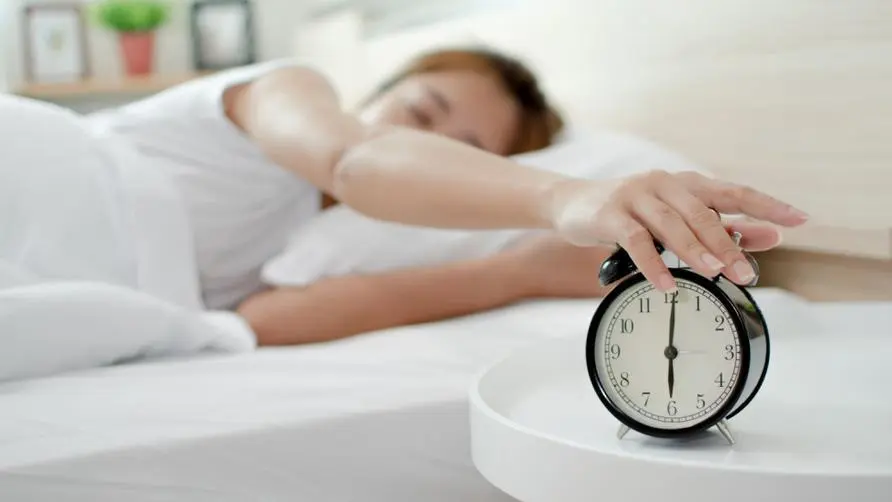Do not ignore tinnitus, dizziness, and sleep apnea. Doctors warn: Severe cases may cause deafness!
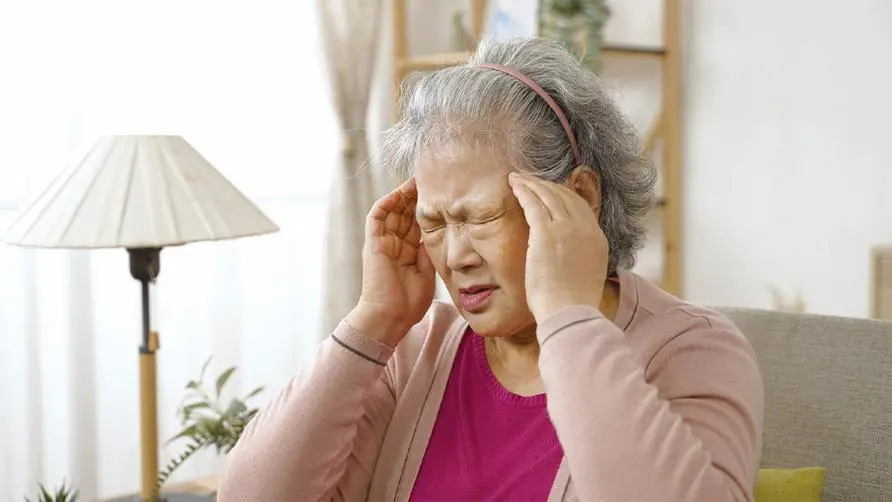
60-year-old Mrs. Wang (pseudonym) suffered from long-term and recurring attacks of vertigo, which did not improve after taking medicine. Blood tests did not reveal anemia or hyperlipidemia. Her children brought her to the clinic. During the clinic, they found that the patient was obese and had a thick neck. Short, and during the consultation, family members reported that Mrs. Wang’s snoring could be heard from the 2nd floor to the 1st floor and she had problems with forgetfulness. After a sleep test, it was found that Mrs. Wang suffered from severe sleep apnea. After 2 weeks of treatment with a positive pressure respirator, she became dizzy. He was cured without medicine and his forgetfulness was improved!
Sleep apnea increases risk of sudden deafness, tinnitus, and vertigo
Director Cai Mingshao of Chiayi Chang Gung Otolaryngology Department said that sleep apnea, as the name suggests, is a condition of hypoxia caused by a person’s apnea during sleep. This disease will affect the inner ear, causing sudden deafness, increasing the chance of tinnitus, and vertigo. There are four main reasons:
Intermittent hypoxia at night: In addition to causing insufficient oxygen supply to the inner ear organs, intermittent hypoxia at night can also cause systemic inflammation and increase blood viscosity, resulting in insufficient blood circulation in the inner ear, thereby increasing the risk of vertigo.
Snoring causes vibrations that narrow blood vessels: The continuous high-frequency vibrations caused by snoring can inflame, thicken, and block the carotid artery wall, hindering blood flow, causing ischemia and hypoxia in the inner ear blood vessels, leading to symptoms such as dizziness and deafness.
The vibration energy of snoring directly causes damage to the inner ear: The cochlea and the three semicircular canals of the inner ear are very fine and tiny structures. If snoring continues for 6-8 hours every night, the inner ear nerves may be damaged and the lymphatic fluid in the ear may be disturbed. Cause tinnitus and dizziness symptoms.
Hearing loss: The sound of snoring can be as high as 50-80 decibels. 80 decibels is equivalent to the sound of a motorcycle horn. Long-term continuous exposure to noise will not only cause hearing loss in patients with sleep apnea, but also studies have pointed out that snorers Bed partners who are exposed to the same noise for a long time can also cause hearing loss.
People with sleep apnea have twice the risk of hearing loss
The symptoms of sleep apnea are different between men and women. Common symptoms for men are loud snoring, loud driving, and difficulty concentrating; common symptoms for women are mood swings, depression, insomnia, dizziness, and headaches. People with sleep apnea have twice the risk of hearing loss. If people find that they suddenly lose hearing in one or both ears, they must seek medical treatment as soon as possible, because 1/3 of patients with sudden clinical deafness cannot recover at all!
Dr. Cai Mingshao specially reminded that the prevalence of sleep apnea in general adults is about 15%, and the male to female ratio is about 3:1. However, the incidence rate among those over 60 years old is more than 60%, and the male to female ratio is close to 1:1 (70% of men and 56% of women are affected). Therefore, older women should be more alert to whether they suffer from sleep apnea.
Home sleep detection, treatment of sleep apnea and prevention of deafness
Dr. Cai said that the high-risk groups for sudden deafness are the elderly, diabetics, and obese people. Currently, there is no effective way to prevent it, but treating sleep apnea is a possible way to prevent it. In addition, if patients with sudden deafness can conduct home sleep testing early to understand their risk of sleep apnea and treat it, they can protect their inner ear function and hearing and reduce the risk of sudden deafness in the future.
Hong Xiaojing, a senior sleep technician at Colin Sleeping Beauty, explained that home sleep testing can easily collect key physiological data of sleep at home through certified medical equipment, such as sleep apnea index AHI (apnea-hypopnea index) and blood oxygen concentration and other information. . This kind of detection is simpler than traditional methods, using only a few lines to obtain necessary information, improving patient comfort and reducing sleep disturbance caused by environmental changes. In the United States, home sleep testing has become mainstream, effectively shortening patients’ waiting time.
Further reading:


